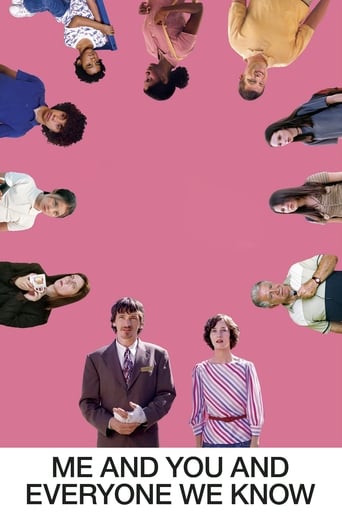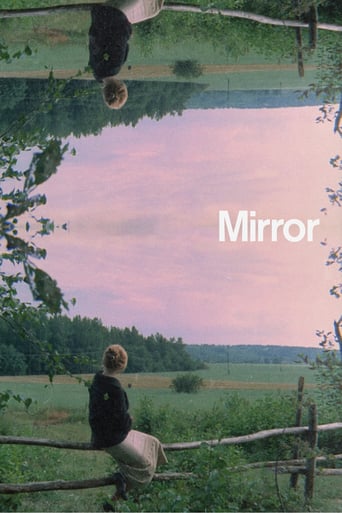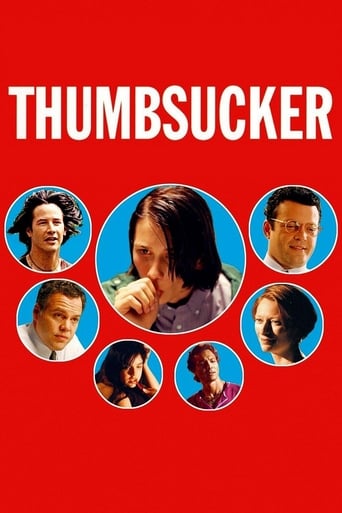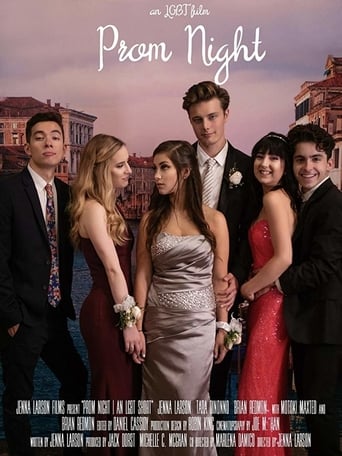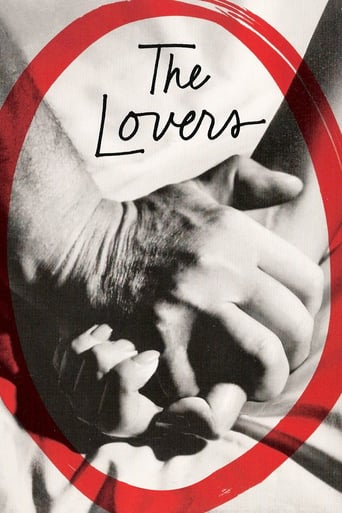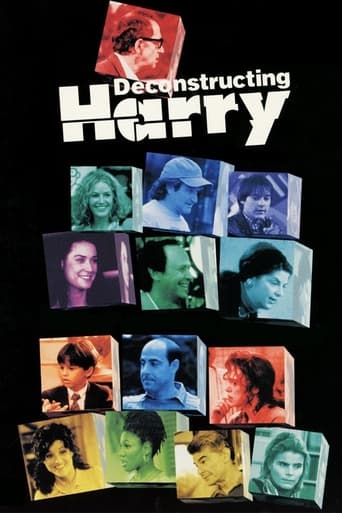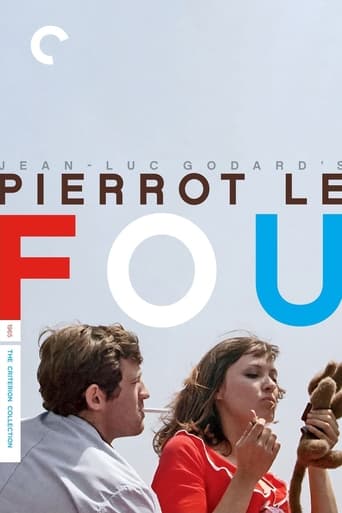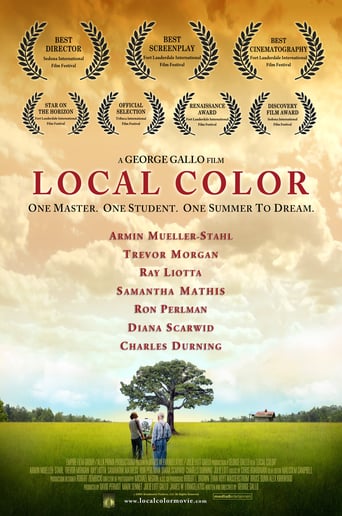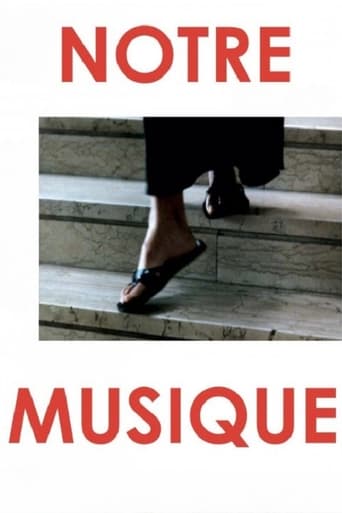
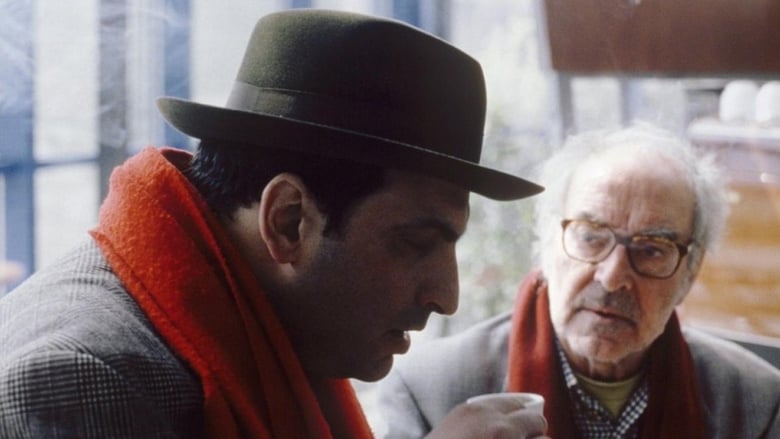
Notre musique (2004)
Divided into three “kingdoms” — Enfer (Hell), Purgatoire (Purgatory) and Paradis (Paradise) — Notre Musique is an indictment of modern times.
Watch Trailer
Cast


Similar titles
Reviews
Sadly Over-hyped
Good concept, poorly executed.
A Masterpiece!
Actress is magnificent and exudes a hypnotic screen presence in this affecting drama.
I number the reviews of my Godard quest so as to provide a sense of continuity and progression, what came before and after. I will likely rest here and leave Film Socialisme for some other time. It's obvious from these last few films that he has said his piece, some ten years before.Nonetheless, in his mode as essayist of cinema he is the most rewarding Godard. He goes where Chris Marker went, but is more lyrical, hoping to evoke what he yearns to transcend. Mortality, love, injustice, he ruminates on these as he did before. He divides his disseminations as three kingdoms.Among the footage of war and atrocity that make up Hell I spotted Eisenstein, from the film he left unfinished in Mexico for Paramount. Which makes me ask what else is staged and illusionary in this, though in the grand scheme it doesn't matter and that is perhaps the point. Filmed from life or for the cinema, these images elicit the same outrage. Our imagination of violence blends well with the reality of it. This segment also shows that Godard is incomparable as editor. Apart from political signifiers, these images I enjoy for the contours of their gratuitous shape, for how they swirl in and out of each other.Purgatory shows us souls in transit, trapped in the dilemmas of existence we know all too well. Aching for meaning or lamenting the absence of it, we see here a tapestry of internal anxiety. Images of roads elucidate our passing through the world, mundane but quietly magical if seen with the right eyes. In this segment he refurbishes an insight from the Histoire(s) project. How we are drawn to the light of the imaginary, in order to cast it in the dark of reality that surrounds us. He also tells us what Kazantzakis had said fifty years ago, that we are truly free of our bonds when we neither hope nor fear. That life is, while death isn't. But he also crams this part with more political discourse, trite by now.This is all well, some of it stale, some of it exceptional. But how to portray Heaven, what does Godard envision the other world to be? This is what intrigued me as I was watching the film.Nature, this is where Godard goes to reflect again, as he did before. Not so curiously, in his Heaven are only young people, one of them reading a book, others playing in the shade. Tres banal or simply tres Godard? The image that closes this is rather poignant though. It's a beautiful, clear day, and the woman is looking out at sea. She can see far but not from where she came.
"Notre Music" is a very ambitious, pretentious and hermetic Jean-Luc Godard's film, divided in three kingdoms: Hell, Purgatory and Paradise like in the Dante's Inferno in the Divine Comedy. Hell shows footages of many wars; Purgatory mixes reality and fiction in Sarajevo; and Paradise is a surrealistic view of a beach "protected" by the American Marines.I found this movie absolutely boring. It seems that Godard wants to challenge the intelligence of the viewers, since to understand his movies the viewer needs to read or listen to his interviews. I respect those who like this French director, but they have to agree that "Notre Musique" is only recommended for fans of Godard and pseudo-intellectuals (there are a lot of them ). My vote is four.Title (Brazil): "Nossa Música" ("Our Music")
Leave it up to Monsieur Godard to shoot his first film to directly address the Palastineans since Ici et ailleurs in '76 in Sarajevo with a cast that includes US Marines, Native Americans in full traditional regalia, and Godard himself in counter-sermonizing flesh. At least, and this is much more than trivial record keeping, the maestro has found a way to render his digital photography as gorgeous as the celluloid variety for which he is well known. The quality of the video images takes Notre Musique miles beyond the wan DV sections in Éloge de l'amour. This is all the more interesting considering his response, during the film's central writer's conference, to a question concerning whether or not digital cameras can save cinema. Godard stares into his DV lense and says nothing; the question cannot have an answer other than the one to be provided, immanently, vis-a-vis the unwinding of our collective species activity. Godard, as always, is best when he resists the unavailing temptation to answer the questions which constitute him as one of the most compelling artists of the 20th Century. Though his autodidactic flights of fancy may fail to soar as solidly as before, his discourses remain ultimately profound, his metaphors as unstintingly powerful as ever, his plagiarism as unflappable. He has begun to rely again on Borges, which is always good, and there is much less Merleau-Ponty. The only major flaw of the film is the opening section "Hell" (yes, Dante is backstage here folks), in which the montage is more of a groantage, in the manner of a Baraka (God no!) more than anything Eisenstein might recognize as dialectical. "Heaven", however, is wonderful. All Godard does is take the US Marine anthem at its word.
"Notre Musique" could be either a late night college bull session or one of those Monty Python skits where historical warmongers sit around rationally comparing their various atrocities with a coolly objective BBC moderator.Maybe it's a French intellectual's reality show pitch: we'll set up a dialog between a Jew and a Palestinian at a literary meeting in bombed-out Sarajevo as observed by living ghost Native Americans after bombarding them with images of war and genocide through 19th and 20th century history.Amidst this trumped-up pretentiousness, Godard the filmmaker does make some good points about war and memory. While the historical images, both from fiction and journalism, are colorized to contemporize them, one easily concedes, yeah, war is hell and hey didn't "Saving Private Ryan" prove that to us, when Godard cannily trumps that thought by discussing how war in fiction - from legend and poetry to movies -- touches people more than the reality.Then just as you're about to protest, hey, you're showing all these war images without their raison d'etre, Godard springs into a profound verbal and visual illustration of the importance of context, leading to an appreciation of how history is written by the victors. The points about the impact on Western psyche of the Trojans from Homer's perspective were more insightful than all of the "Troy" movie.However, those debaters that are translated in the subtitles talk in didactic epigrams that will make more sense when one can rewind the DVD for reflection (including the explanation of the title). The French intellectual smug superiority gets annoying -- we don't see any images of WW II collaborators vs. Resistance fighters, let alone colonial legacy issues in Algeria or Muslims in France today.While I'm not sure if the images of discarded books amidst the ruins of war were about the hopelessness of literature and the arts or its unquenchable survival as some are salvaged, Godard has an intellectual's faith in the power of dialog (and cigarette smoking), though pessimistic about the ability of the media to communicate it effectively, as he sets up an overly freighted discussion between an idealistic and ambitious young Israeli woman of Russian descent, whose grandparents were saved from the Holocaust by a Righteous Gentile, and an articulate Palestinian writer, as translated by another Wandering French/Israeli Jew.I think he was also trying to incorporate suicide bombers into the trajectory of French intellectual thought from Durkheim to Camus that sees it as an existential act of protest against anomie, but well, Jean Luc, we can't all be French.Typical for a Godard film, the woman to my right gushed that it was her second screening and it was her favorite of his films, and the woman on my left said she couldn't figure out what it was about.





